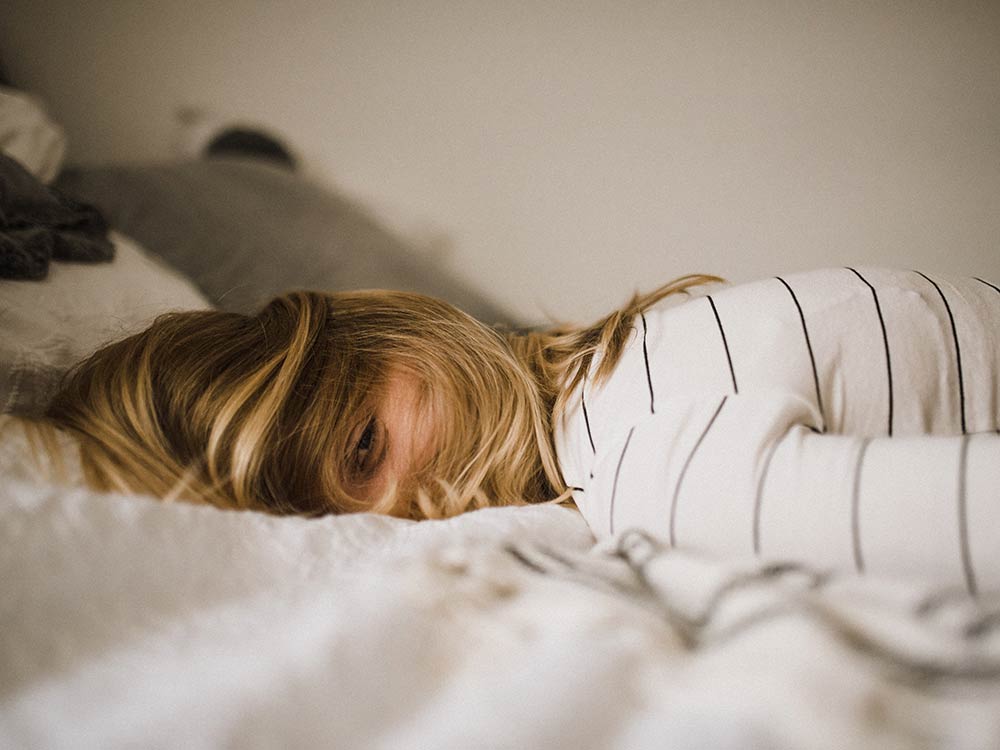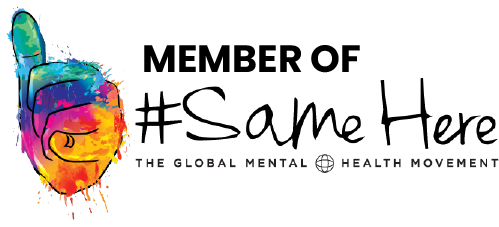1. Undiagnosed or Misdiagnosed Sleep Disorders
Sleep disturbance can be both a cause and a symptom of mental health problems. But this relationship does not imply that sleep problems are always symptoms of a larger mood disorder. They might be indicative of a standalone sleep disorder, such as narcolepsy, sleep apnea, and more.
Because sleep patterns and mental health disorders are so intertwined, sleep disorders are often underdiagnosed or misdiagnosed as a myriad of other mental health conditions, such as ADHD in adults.
This also means that not all people who experience trouble sleeping have insomnia. What might look like insomnia might actually be delayed sleep phase syndrome (DSPS). Those with DSPS complain of consistently falling asleep later than desired and difficulty waking up at the desired time. This delay in sleep onset can lead to significant distress or impairment in social and occupational functioning. However, when we’re able to regulate our sleep schedule, the quality of our sleep can improve.
2. Lost Routines
Our body keeps its own routine by regulating our circadian rhythm. Circadian rhythms are biological clocks that regulate our sleep-wake cycle and other bodily functions like digestion and hormone release. Every living thing has a circadian rhythm, including plants, animals, and microbes.
While our body naturally regulates our circadian rhythm, it is strongly influenced by signals in our environment, like light. Most people’s circadian rhythm cycles with the sun: when there is more light, like during the day, we feel more awake. When there is less light, like at night, we feel drowsy.
But in our era of smartphones and easy access to digital information, this constant exposure to light can throw off our body’s natural sleep routine and affect our mental health. A lack of routine can lead us to feel stressed and disorganized.
However, we can structure our environment in ways that help our circadian rhythm do its job. Minimize blue light exposure by turning down your screen brightness, dim your light a few hours before bed, and stay in bright light during the day.
3. Lost Productivity
Understanding your body clock or chronotype can help maximize feelings of restfulness and productivity. Chronotypes are the behavioral manifestations of our natural circadian rhythms, which influences the likelihood that we’ll fall asleep at a particular time during a 24-hour period. Chronotypes depend on genetics, environmental influences, age, and more.
Chronotypes are generally separated into morning types and evening types, but there are variations. Our chronotype dictates when we like to wake up and when we have our greatest energy or feel the most productive.
A mismatch between our chronotype and environment can have detrimental effects and lead to a loss of productivity, which means our chronotype is important to consider when planning activities and tasks. If you know you’re an early riser and feel most productive before lunch, try to plan all your meetings and deadlines during that time, especially if you anticipate a crash in the afternoon. Ensuring a good fit between our chronotype and environment can help increase our productivity.
4. Memory Problems
Think back to when you were in school. Do you remember staying up late cramming for a test? You might have considered pulling an all-nighter, but then you remember someone told you to “just sleep on it” to ensure you remember the material.
During sleep, our brain organizes and consolidates information that we took in throughout the day. This is our brain’s way of making sense of what we’ve learned and influences three specific processes:
- Acquisition – how our brain receives and learns information
- Consolidation – the process by which our brain strengthens and extends connections to make our memories more stable and useful
- Recall – how our brain accesses and uses stored information and memories
Poor sleep negatively affects all three processes. We’re less likely to retain and remember information. It’s almost as if all your teachers telling you not to pull all-nighters were onto something.
5. Decreased Creativity in Problem Solving
Similarly, “sleeping on it” allows us to brainstorm creative solutions to problems. Sleep facilitates creative problem solving by granting us an incubation period, or a period of time spent away from the problem at hand.
Some research on creative problem solving suggests our brain prunes misleading information and dead ends during sleep so that we can later return to the problem at hand with a clear mind.
6. Increased Tension and Irritability
Think about how you feel when you don’t get adequate sleep. Maybe you had trouble falling asleep, tossed and turned all night, or woke up much earlier than you’d like. Are you cheerful and ready to take on the day? Probably not. We’re often pretty cranky when we don’t get enough sleep.
Even small changes in the amount of sleep you’re getting can chip away at a normally cheerful exterior. In fact, the American Psychological Association recognizes a relationship between sleep and stress, whereby a decrease in quantity or quality of sleep can lead to problems with irritability and muscle tension. No wonder it feels like we’re waking up on the wrong side of the bed.
7. Increased Risk of Anxiety and Depression
Sleep disturbances can also increase our risk for developing anxiety and depression. People with insomnia are 10 times more likely to suffer from depression and 17 times more likely to suffer from anxiety. The hypervigilance characteristic of anxiety forces people to stay alert at all times, which makes it difficult to truly relax and have restful sleep. For depression, the relationship between poor sleep and this disorder is so clear that insomnia has long been considered a risk factor for depression.
The relationship between sleep and mental health is clearly complex, but understanding it can help us live better, healthier lives. And that’s something that will help anyone sleep well at night.
Understanding these seven principles and the importance of a good night’s sleep is just the beginning. Schedule a consultation or sign up for my upcoming online course where we will do a deep dive into the science behind a good night’s sleep and help you discover how to make it a regularity in your life.
Ready to optimize your sleep? Get our FREE holistic sleep guide!




